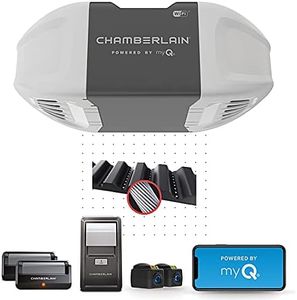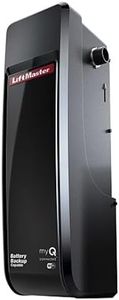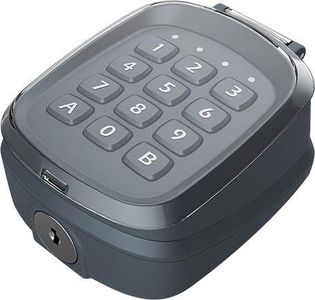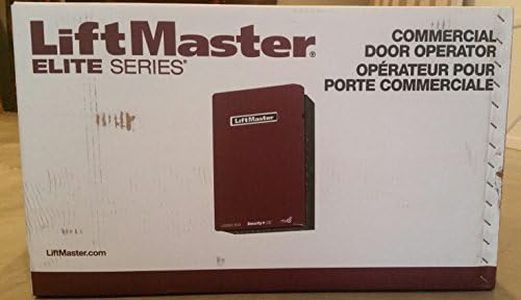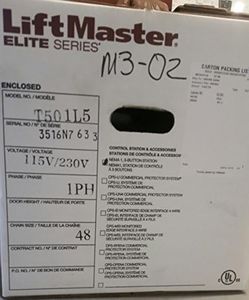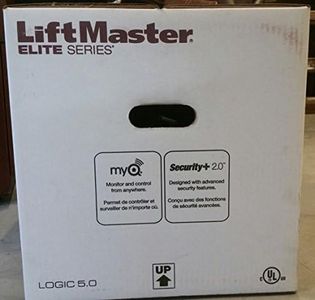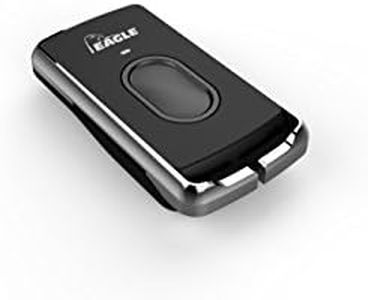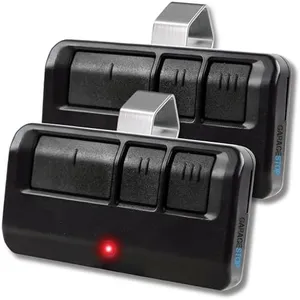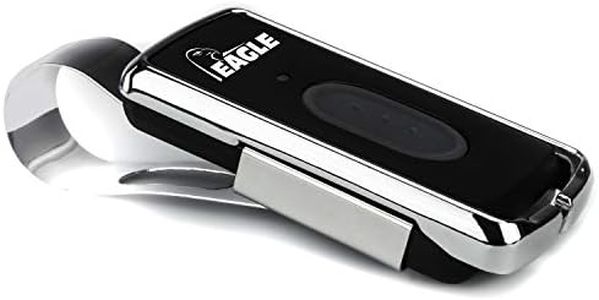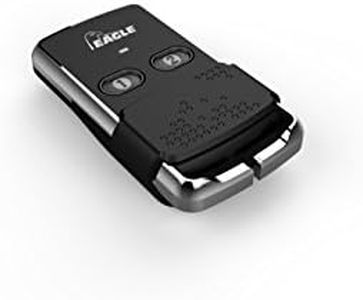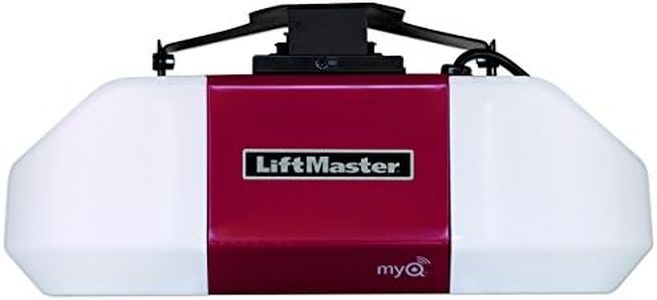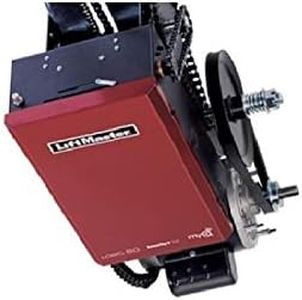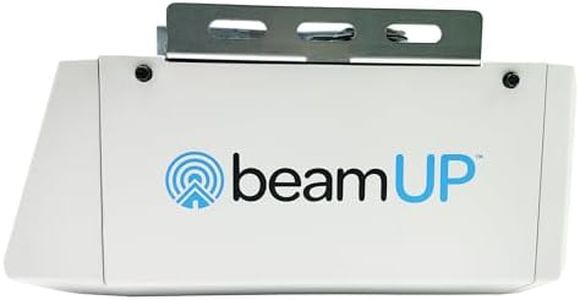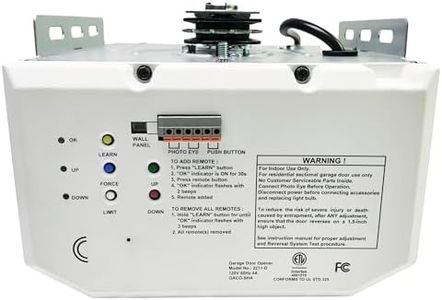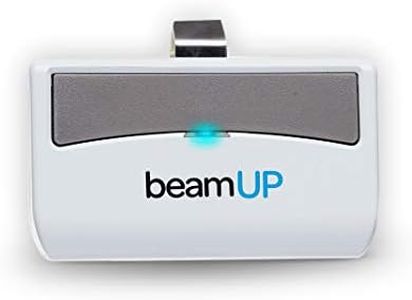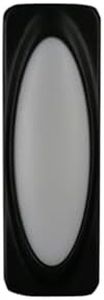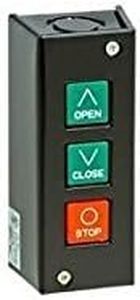10 Best Commercial Garage Door Openers 2025 in the United States
Winner
CHAMBERLAIN B2401 Smart Quiet Belt Drive Garage Door Opener, Gray
The Chamberlain B2401 Smart Quiet Belt Drive Garage Door Opener is designed with modern technology and convenience in mind. One of its standout features is the smartphone control via the myQ app, allowing users to manage their garage door from anywhere. This can be particularly beneficial for those who value security and convenience. The quiet belt drive system, combined with a strong AC motor, makes it ideal for homes with living spaces adjacent to the garage, minimizing noise disturbance.
Most important from
943 reviews
LiftMaster Elite Series 8500W (Replaced by 98022) Jackshaft Garage Door Operator, WiFi
The LiftMaster Premium Series 98022 is a commercial-grade garage door opener designed for efficiency and reliability. It features a sleek wall-mounted jackshaft design that frees up ceiling space, making it ideal for garages with limited headroom. The powerful P3 motor ensures durable performance, while the ultra-quiet operation minimizes noise and vibrations, which is beneficial for businesses that operate in noise-sensitive areas.
Most important from
681 reviews
LIFTMASTER 8900W Light-Duty Commercial JACKSHAFT Operator W/Built-in WI-FI for SECTIONAL Doors LJ8900W
The LIFTMASTER 8900W Light-Duty Commercial JACKSHAFT Operator is designed specifically for sectional doors, making it a strong fit for commercial settings with this door type. Its built-in Wi-Fi feature is a standout, offering convenient remote control and monitoring capabilities, which is a great advantage for busy commercial environments. The JACKSHAFT drive type is known for its space-saving design, which can be beneficial in tight spaces or garages with low headroom.
Most important from
86 reviews
Top 10 Best Commercial Garage Door Openers 2025 in the United States
Winner
10.0 score
CHAMBERLAIN B2401 Smart Quiet Belt Drive Garage Door Opener, Gray
CHAMBERLAIN B2401 Smart Quiet Belt Drive Garage Door Opener, Gray
Chosen by 1206 this week
LiftMaster Elite Series 8500W (Replaced by 98022) Jackshaft Garage Door Operator, WiFi
LiftMaster Elite Series 8500W (Replaced by 98022) Jackshaft Garage Door Operator, WiFi
LIFTMASTER 8900W Light-Duty Commercial JACKSHAFT Operator W/Built-in WI-FI for SECTIONAL Doors LJ8900W
LIFTMASTER 8900W Light-Duty Commercial JACKSHAFT Operator W/Built-in WI-FI for SECTIONAL Doors LJ8900W
Liftmaster Mh 5011u Commercial Garage Door Opener Medium-duty Hoist Operator w/ Safety Beams
Liftmaster Mh 5011u Commercial Garage Door Opener Medium-duty Hoist Operator w/ Safety Beams
LiftMaster MT5011U Premium Medium Duty Commercial Trolley Motor Operator NO RAIL
LiftMaster MT5011U Premium Medium Duty Commercial Trolley Motor Operator NO RAIL
8.2 score
Our technology thoroughly searches through the online shopping world, reviewing hundreds of sites. We then process and analyze this information, updating in real-time to bring you the latest top-rated products. This way, you always get the best and most current options available.

